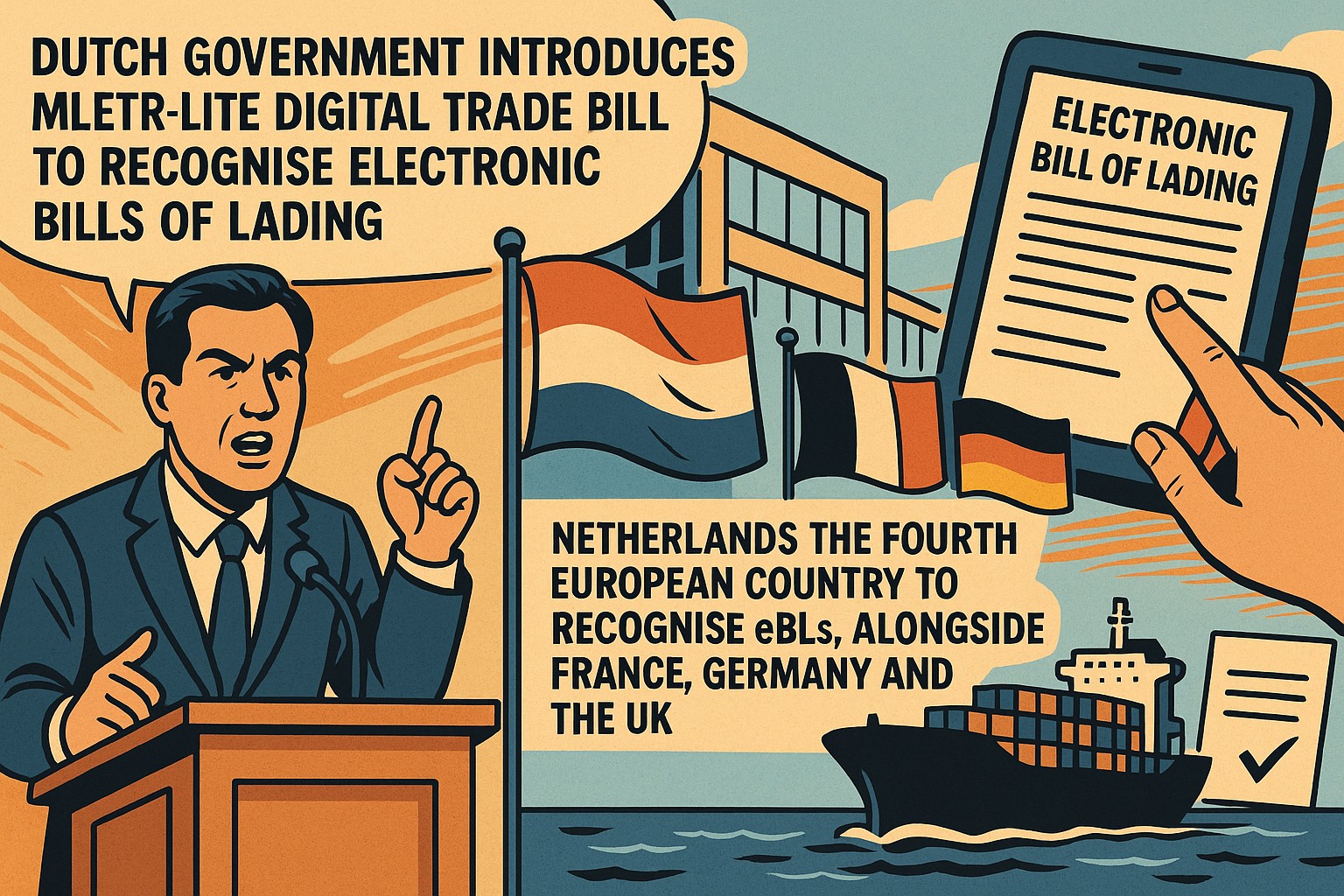
In a significant move towards the digitalisation of trade, the Dutch government has introduced a draft bill in the lower house of parliament to grant electronic bills of lading (eBLs) the same legal status as their paper counterparts. This initiative positions the Netherlands as the fourth European country—following France, Germany, and the UK—to formally recognise eBLs, aligning with the UNCITRAL Model Law on Electronic Transferable Records (MLETR).
The proposed legislation aims to provide clarity on the legal equivalence of eBLs, addressing the practical need for regulations that confirm when and how electronic versions of these documents are valid. By doing so, it seeks to accelerate trade transactions by eliminating the need for physical couriering of documents between ports, trading houses, and banks.
However, the scope of the draft law is currently limited to eBLs, with other transport documents like bills of exchange excluded pending further research. A review clause within the bill mandates an evaluation after three years to assess the potential extension of the law to other digital transport documents.
The adoption of eBLs is expected to enhance efficiency in global trade, but challenges remain, particularly concerning the adoption rates among banks. According to a survey by the Digital Container Shipping Association, while approximately 50% of businesses reported using eBLs, slow adoption by financial institutions has been identified as a significant barrier to broader implementation.
This legislative development underscores the Netherlands’ commitment to advancing digital trade and could serve as a model for other nations considering similar reforms.
Summary by DigitalTrade4.EU
